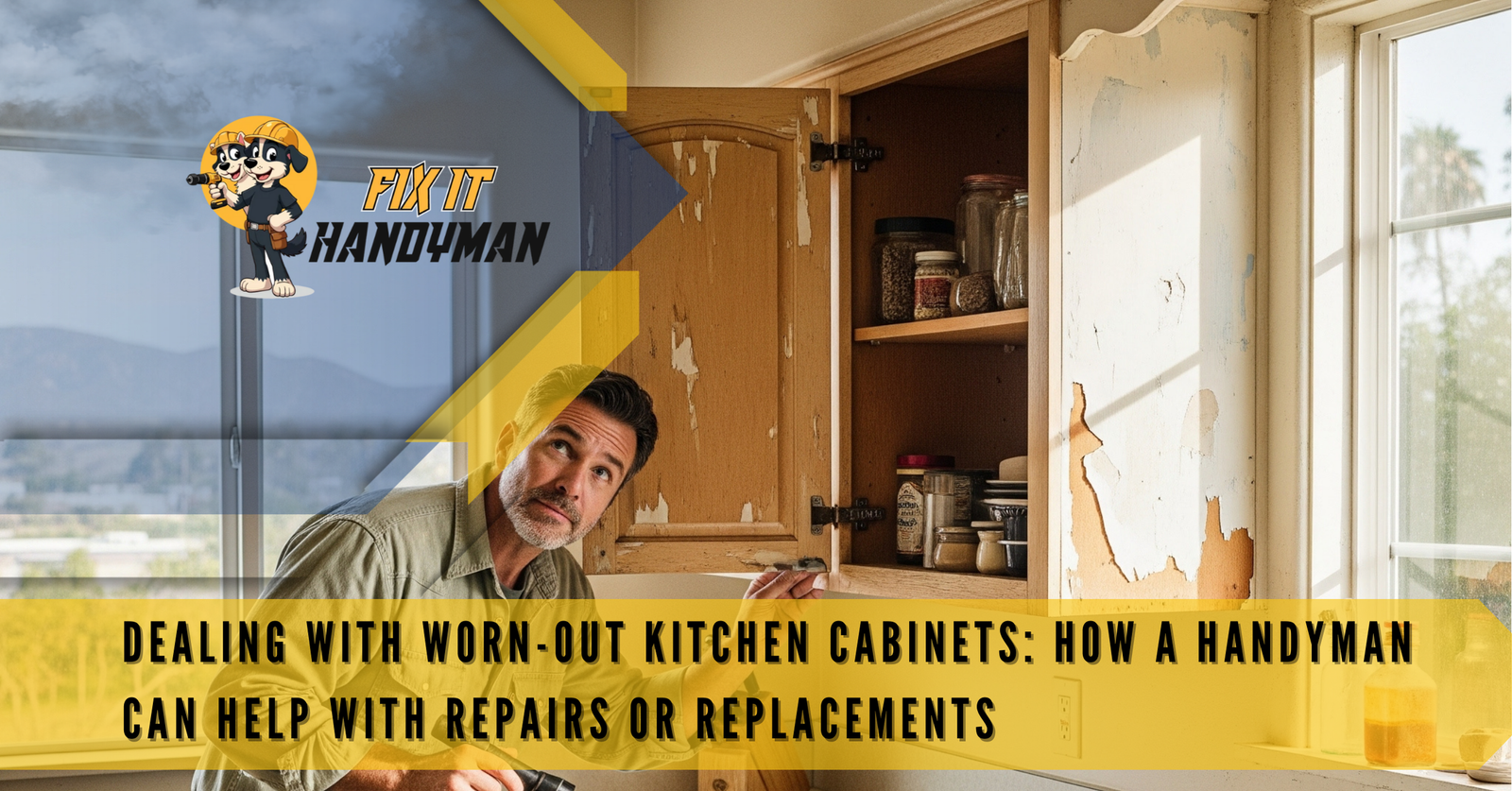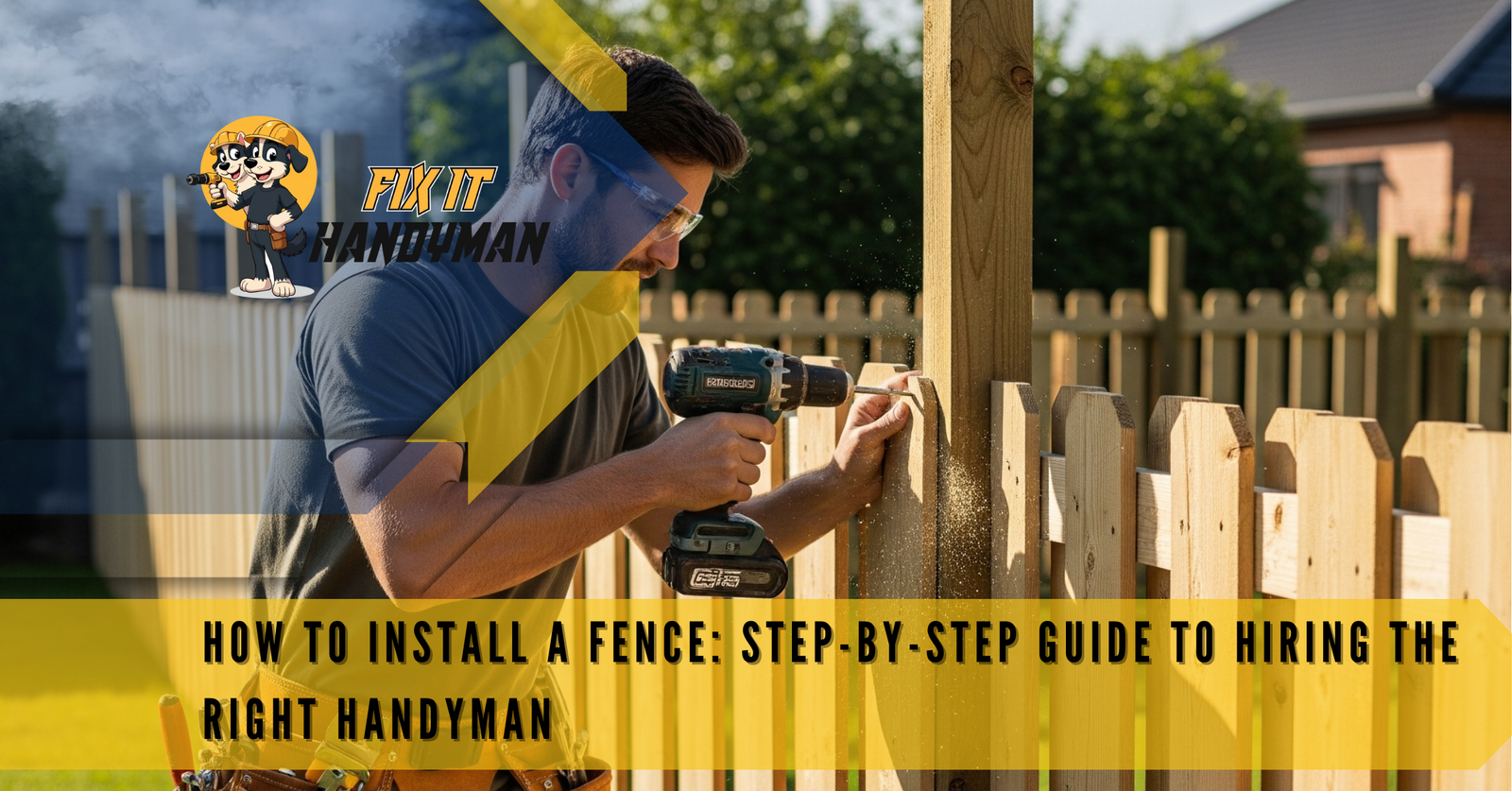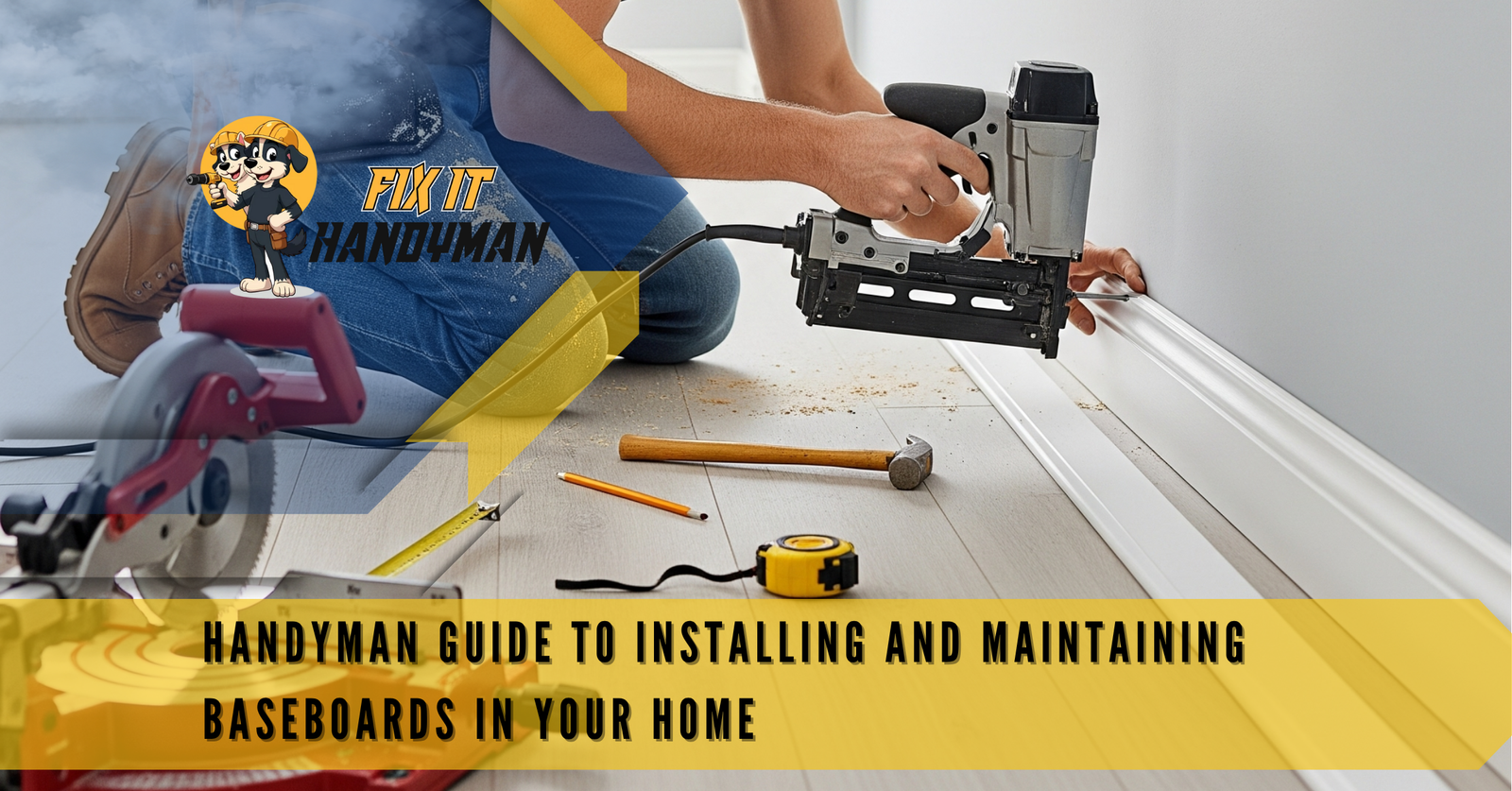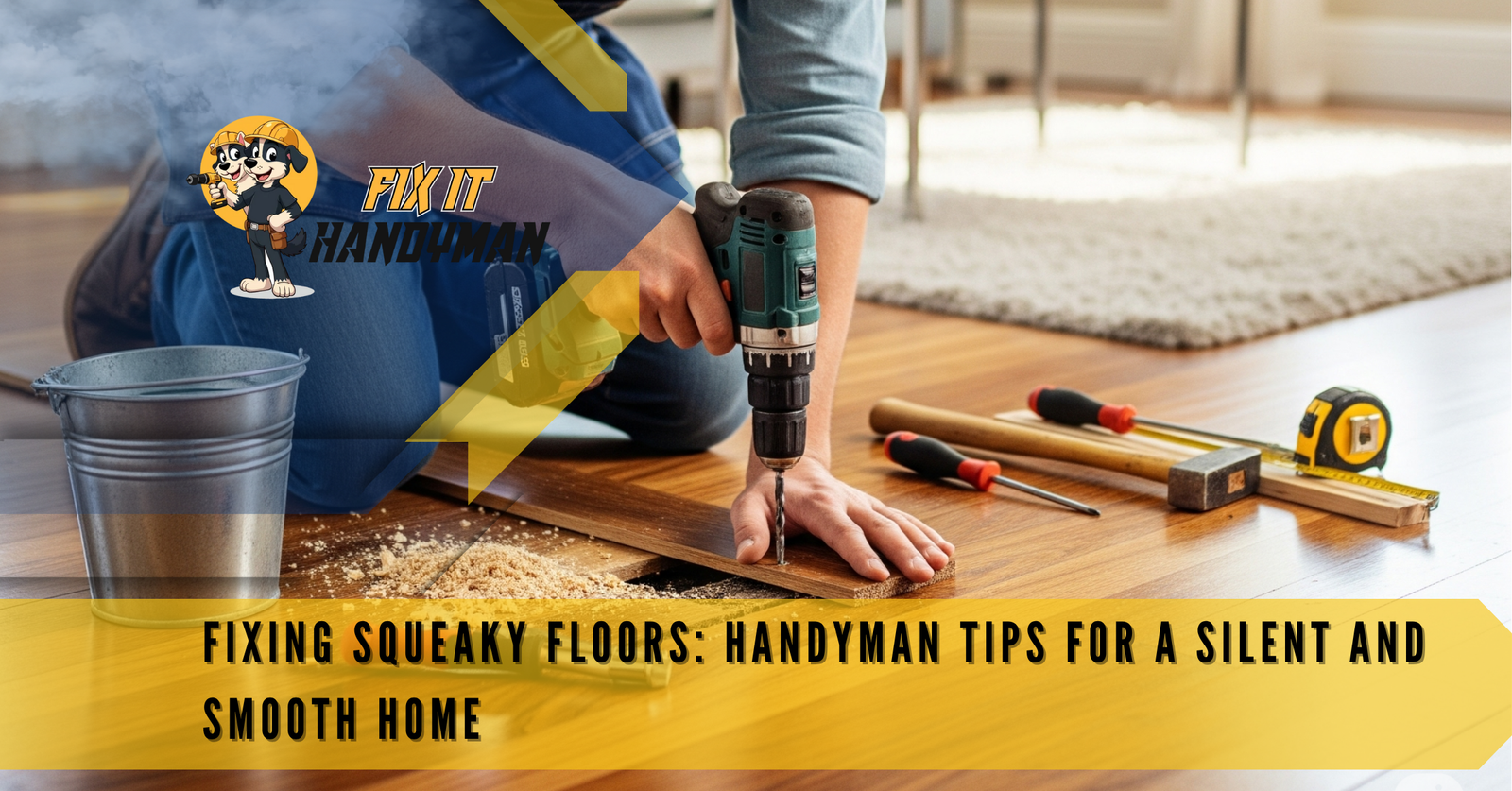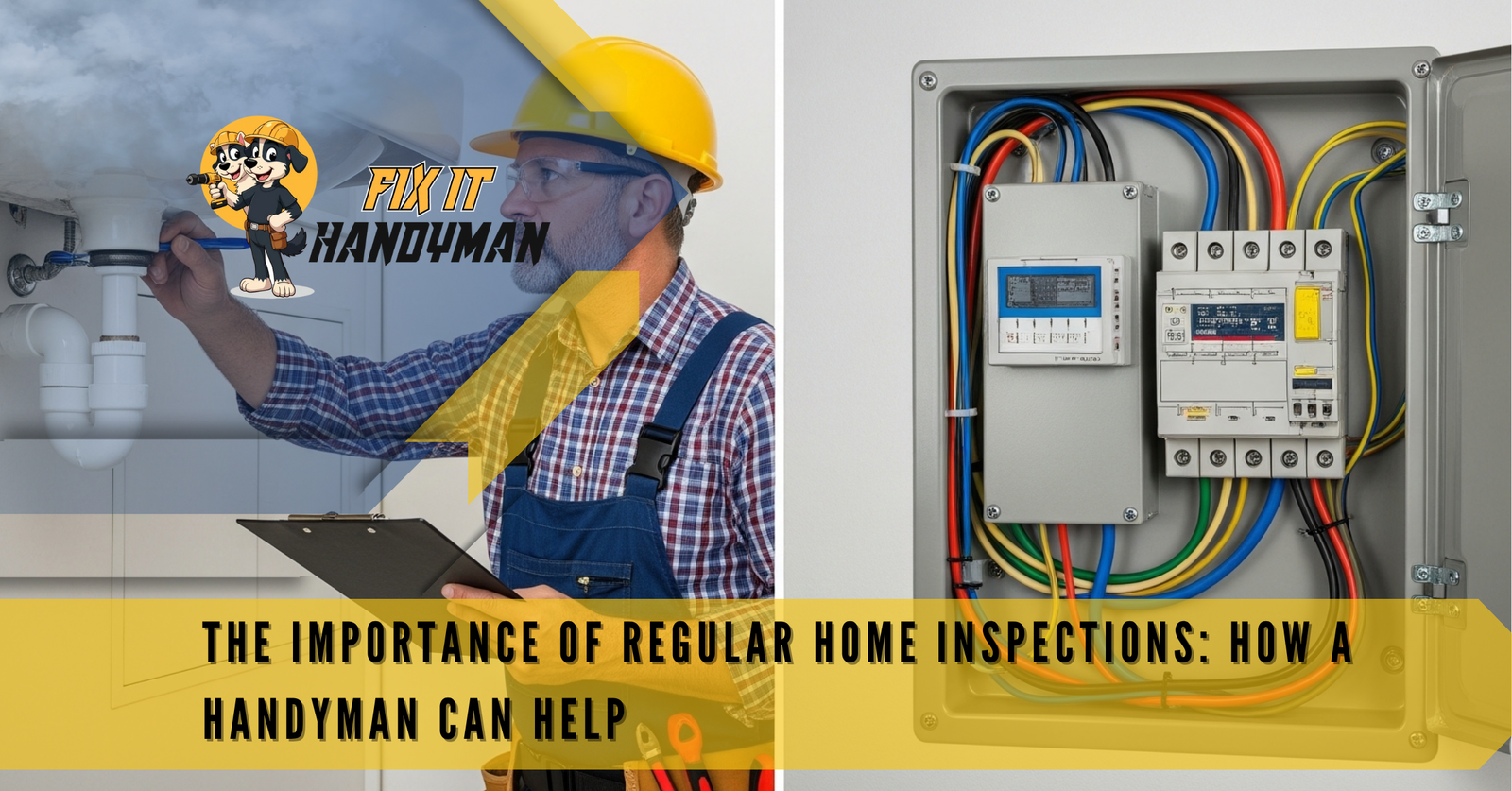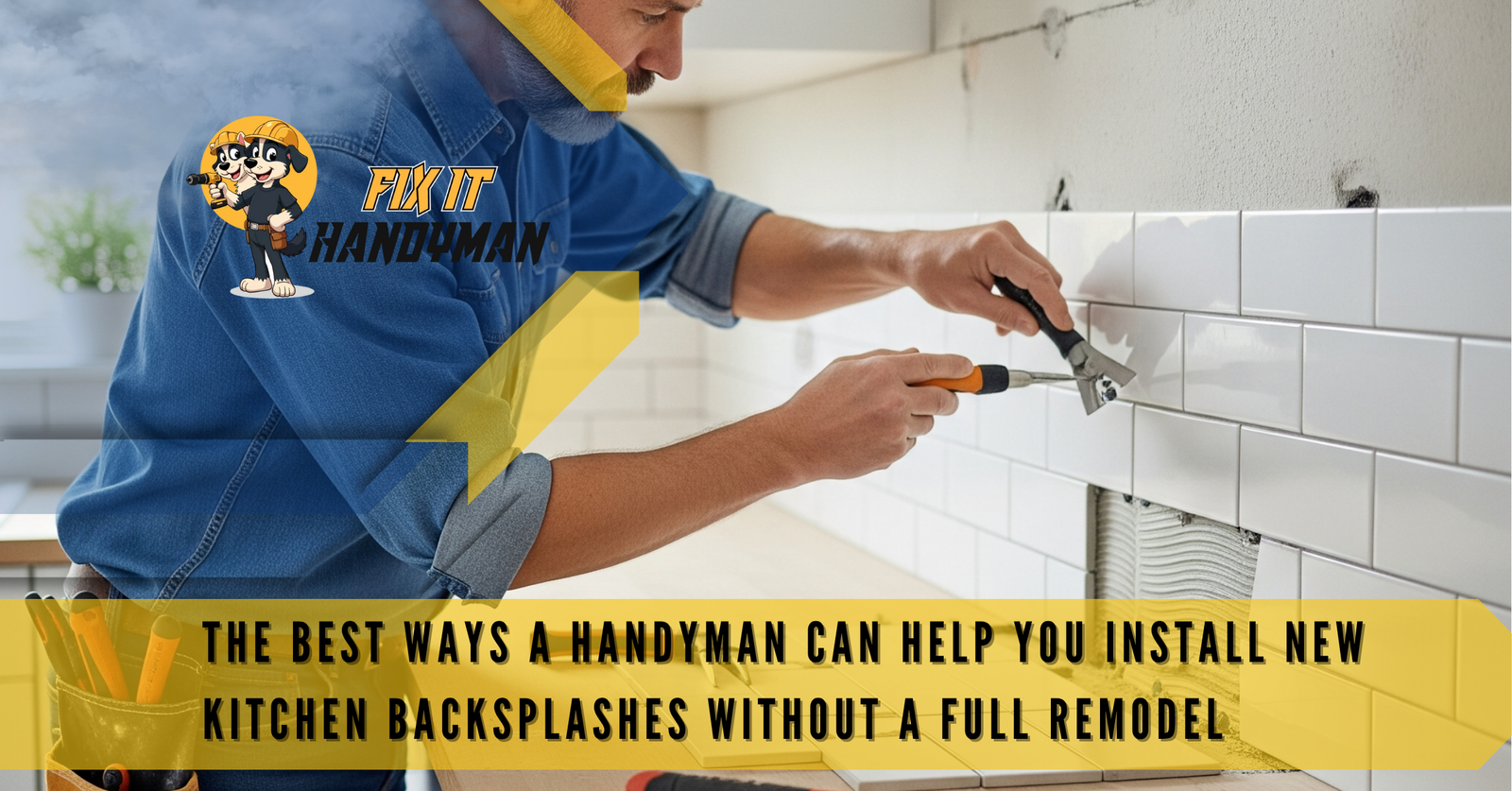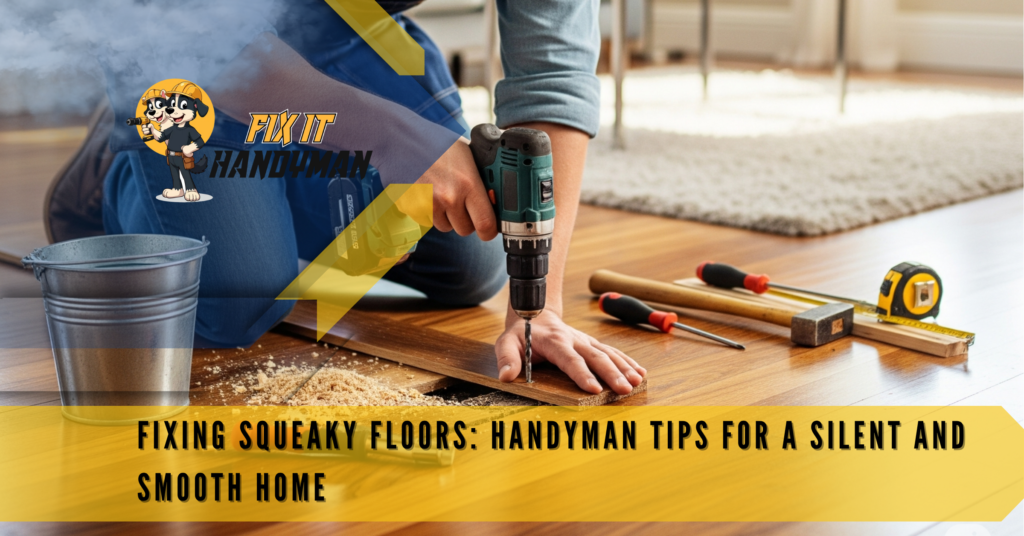Introduction
That annoying creak every time you cross the living room isn’t just a small inconvenience; it can be a sign your floor needs attention.
Fixing squeaky floors is easier than many homeowners think, and with the right tips, you can enjoy a silent, smooth, and peaceful home once again.
In this guide, discover handyman-approved solutions for why floors squeak and practical ways to silence them, whether your flooring is hardwood, carpeted, or laminate.
Why Floors Squeak: The Basics
Before fixing the squeak, it helps to know why it happens.
Most squeaks are caused by:
Loose floorboards rubbing together
Nails or screws moving in their holes
Gaps between the subfloor and joists
Seasonal humidity changes cause wood expansion and contraction
Identifying the source is step one to a long-lasting fix.
Handyman Tips for Fixing Squeaky Hardwood Floors
1. Re-Secure Loose Boards
If you can see the squeaky spot:
- Use finishing nails or trim screws to secure the floorboard to the subfloor
- Place fasteners at an angle to hold better
- Countersink and fill holes with wood filler to keep the look clean
2. Lubricate Between Boards
Wood rubbing against wood is a common cause. Sprinkle:
Graphite powder
Talcum powder
Baby powder
Sweep it into the gaps, then walk over the area to help it settle.
3. Shim the Subfloor
If you have access from below (like an unfinished basement):
- Insert a wood shim with a bit of carpenter’s glue between the subfloor and joist where the gap is
- Don’t force it too hard, you only need to fill the gap to stop movement
Tips for Carpeted Floors That Squeak
Squeaks often come from the subfloor, even under carpet.
Use breakaway screws or special kits like Squeeeeek-No-More:
- Locate the squeak by stepping around
- Screw through the carpet into the subfloor
- Snap the screw head below the surface so it won’t damage the carpet
Simple, effective, and doesn’t require lifting the carpet.
When Laminate Floors Squeak
Laminate floors usually float, so squeaks often mean:
- Uneven subfloor
- The expansion gap is too tight
- Underlayment shifting
Check:
Expansion gaps around edges
Level of subfloor
Add talcum powder between planks to reduce friction
If the subfloor is uneven, you might need to remove sections to add leveling compound.
Preventing Future Floor Squeaks
Choose Quality Materials
- Use properly seasoned wood
- Install moisture barriers where needed
Control Humidity
- Keep indoor humidity between 40–60% year-round
- Use humidifiers in winter and dehumidifiers in summer
Professional Installation
- Correct spacing, nailing, and subfloor preparation help prevent squeaks from the start
When to Call a Professional Handyman
DIY fixes work for many squeaks, but call an expert when:
- The noise is widespread, not localized
- The floor feels spongy or uneven
- There’s visible damage, mold, or rot
Professionals can:
- Replace the damaged subfloor
- Reinforce joists
- Diagnose hidden structural problems
Cost of Fixing Squeaky Floors
| Fix Type | DIY Cost | Professional Cost |
|---|---|---|
| Lubricating boards | Under $10 | $50–$100 |
| Adding screws or nails | $5–$20 | $150–$300 per room |
| Subfloor shimming | $5–$15 | $200–$500 (depends on access) |
Small fixes often cost little but prevent bigger repairs later.
Handyman Tricks to Make It Last
Walk the floor after repairs to check for new spots
Always pre-drill when adding screws to avoid splitting wood
Check for pipe and wiring locations before drilling
Conclusion
Squeaky floors might seem harmless, but they’re more than an annoyance; they hint at loose boards, shifting subfloors, or humidity issues.
Using these handyman-approved tips:
- Find and fix the cause
- Silence the squeaks
- Extend your floor’s life
Enjoy the comfort of a quiet, smooth home, and keep the creaks away for good.

